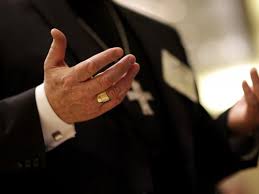An American living much of the year in Mexico wrote asking me to “state my religious agenda.” I accept the challenge, but question its premise.
 The term “religious agenda” implies an underlying ideological plan or program. It also implies that I have a hidden agenda, since the reader insists I state it.
The term “religious agenda” implies an underlying ideological plan or program. It also implies that I have a hidden agenda, since the reader insists I state it.
I don’t have an agenda, though I do have an intent, which a reading of a few of these columns will discern. It is to fully awaken and ignite insight within the individual, beginning within oneself.
Intent is not the same thing as intention, much less agenda. Intention involves a desired goal, a fixed end, whether stated or unstated. But intent is a passion deeper than desire, and only implies a direction, without an end in mind.
The reader’s states his basic premise by saying, “Religion is a null set.” By that he means religion is invalid, indeed, that it amounts to nothing. But like all hard atheists, he throws the baby out with the bathwater.
True, thousands of years of organized religion in the so-called civilized world haven’t made humans less violent and more compassionate toward each other. Indeed, in the present world, the divisions, hatreds and conflicts generated by religious identification have offset the curbs on destructive behavior that religion formerly provided to some degree through moral strictures.
Religion reflects two powerful, apparently innate human tendencies–one good, the other harmful. On one hand the universality of religion in some form indicates that the religious impulse, which can be defined as the urge for wholeness and holiness, is common to all people and all times.
On the other hand, the tendency to encrust religious experience with belief, and identify with particular groups, has made for the irrelevance and destructiveness of belief systems and traditions in the global village.
Scriptures, priests and rituals represent the objectification of religious experiencing, replacing direct perception and feeling with beliefs and theologies. Organized religion no longer holds any animating force, except divisively, to the true believers of separate, fixed creeds. Indeed, religious fervor has become synonymous with terrorism.
The greater the genuine religiosity, the less rigidly a person clings to a belief system. But if one strips away the belief system, does the religious impulse still exist?
Yes. Without resorting to the ‘my truth’ and ‘my path’ mentality, each person can draw from the infinite well of religious experiencing.
It’s disturbing to realize that organized religion has impeded the spiritual development of the human being. But beliefs, the currency of religions, corrupt religiosity; and fundamentalist beliefs corrupt it absolutely. Therefore, the stronger the belief, the greater the spiritual corruption and paralysis.
Spiritual growth, which grows out of self-knowing, is arduous. One has to regularly (not just once a week in a designated ‘sacred’ building) take the time to initiate the movement of negation through passive observation.
Then meditation, or whatever you want to call it, spontaneously ignites. The observer dissolves, thought slows, and time stops. Being fully present in the present, the timeless, life and death are as close as breathing in and breathing out.
Then there is something beyond words, ideas, concepts and beliefs. Call it what you will. I don’t like to give it any name (since that’s where the trouble with organized religion starts). 
Religious experiencing begins the moment the separate self falls away and thought deeply quiets down. The brain is renewed, and infused with insight.
Given the validity of so-called mystical experiencing (in the sense that there is an intelligence beyond thought/time of which the silent mind/brain can be aware), the human brain is more than a knowledge machine and economic unit.
Do our brains, because they give us the potential to be aware of the numinous, of immanence, have greater significance to the intelligence that imbues the universe?
Is there an inseparable intent, both beyond and within the human being, to bring about a transmutation in the individual and humankind?
If so, why is only darkness operating effectively in human consciousness at present?
The closer I come to the truth, the fewer answers I have. But I feel that if and when insight is fully awakened in a sufficient number of individuals, a psychological revolution will ignite, and a new species of human being will emerge.
Human beings will then live in basic, if imperfect harmony with nature and each other—as opposed to our present trajectory of increasing fragmentation, disorder and chaos, which is eroding the human spiritual potential and driving humans toward a machine-like existence.
Religiosity begins and ends with the individual. All intermediaries interfere with authentic religious experiencing. Find out the truth of these things for yourself, and do your own spadework.
Martin LeFevre

